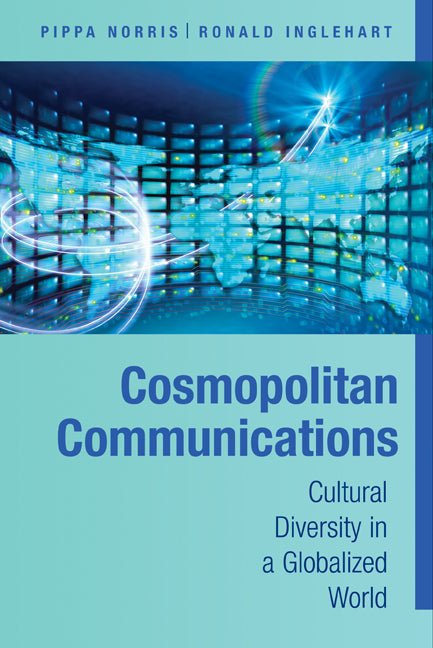Freshly Printed - allow 8 days lead
Couldn't load pickup availability
Cosmopolitan Communications
Cultural Diversity in a Globalized World
This book develops a new theoretical framework for understanding cosmopolitan communications and identifies the conditions under which global communications are most likely to endanger cultural diversity.
Pippa Norris (Author), Ronald Inglehart (Author)
9780521738385, Cambridge University Press
Paperback, published 31 August 2009
446 pages, 41 b/w illus. 32 tables
22.9 x 15.3 x 2.5 cm, 0.59 kg
“This meticulous and sophisticated empirical survey of the formation of cultural and political values in relation to exposure to news media dispels some persistent myths and casts new light on a discourse which has become dominated by entrenched positions. More than this, it offers an original and persuasive thesis on the significantly moderating effects of local cultural and institutional conditions on cosmopolitan communications. A landmark study and an essential point of reference for analysts, activists and policy makers alike.”
-John Tomlinson, Nottingham Trent University
Societies around the world have experienced a flood of information from diverse channels originating beyond local communities and even national borders, transmitted through the rapid expansion of cosmopolitan communications. For more than half a century, conventional interpretations, Norris and Inglehart argue, have commonly exaggerated the potential threats arising from this process. A series of firewalls protect national cultures. This book develops a new theoretical framework for understanding cosmopolitan communications and uses it to identify the conditions under which global communications are most likely to endanger cultural diversity. The authors analyze empirical evidence from both the societal level and the individual level, examining the outlook and beliefs of people in a wide range of societies. The study draws on evidence from the World Values Survey, covering 90 societies in all major regions worldwide from 1981 to 2007. The conclusion considers the implications of their findings for cultural policies.
Introduction: 1. Is cultural diversity under threat?
2. Theoretical framework
Part I. Firewalls: 3. Markets
4. Poverty
5. Classifying societies
Part II. Consequences: 6. Citizens: nation and cosmopolitan identities
7. Consumers: economic values
8. Morality: traditional values, gender equality, and sexuality
9. Activists: support for democracy, self-expression values, and human rights
Part III. Conclusions: 10. Cultural convergence over time?
11. The implications for cultural policies
Technical Appendix A. Concepts and measures
Technical Appendix B. List of countries
Technical Appendix C. Methods.
Subject Areas: Media, information & communication industries [KNT], Comparative politics [JPB], Media studies [JFD]


